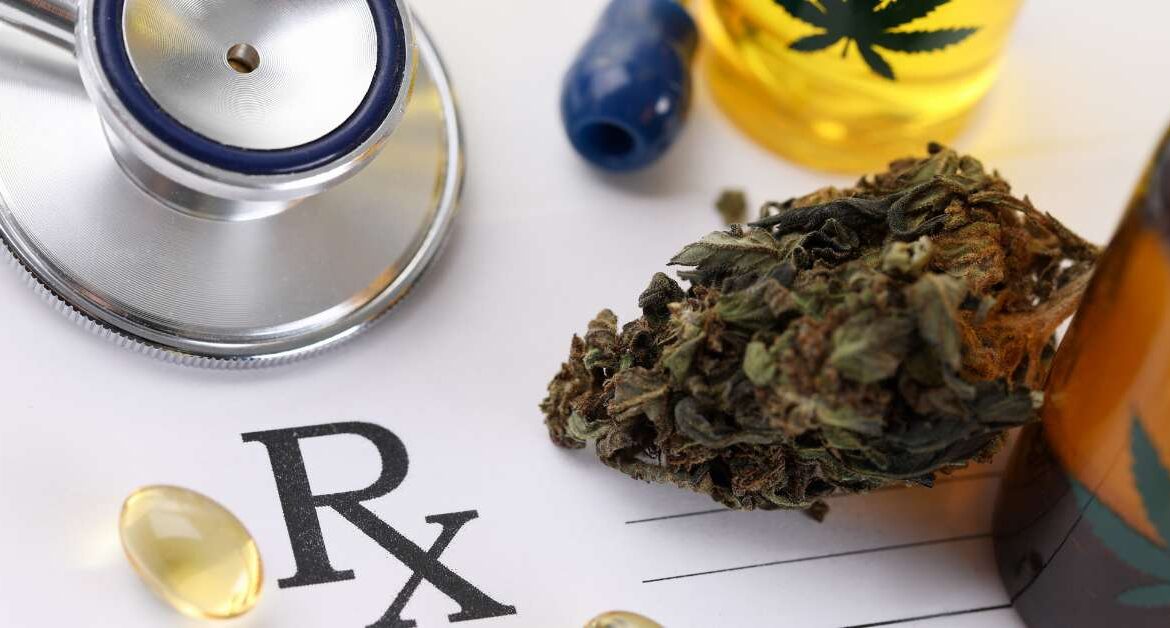Unveiling the Mysteries of this Unique Cannabis Compound

Unveiling the Mysteries Delta-8 THC, a cannabis compound gaining attention, is being explored due to its unique properties. It differs from Delta-9 THC, offering a milder psychoactive experience. Legal in some places, Delta-8 THC is popular for its potential therapeutic benefits and is sought after by both recreational and medicinal users. However, regulations and risks should be considered. Ongoing research and consumer experiences are shaping our understanding of Delta-8 THC and its impact on the cannabis industry. Its rise offers an intriguing alternative for those seeking a moderate cannabis experience.
The Rise of Delta-8 THC
Delta-8 THC, a cannabis compound, has experienced a notable surge in popularity and interest. Distinguished from its well-known counterpart, Delta-9 THC, Delta-8 THC offers a distinct psychoactive experience. With a chemical structure similar to Delta-9 THC, but with slight differences, Delta-8 THC provides a milder and less intense high. This characteristic has attracted many individuals who seek a more moderate cannabis experience.
One contributing factor to the rise of Delta-8 THC is its legal status in certain jurisdictions where Delta-9 THC remains restricted. This legality has allowed Delta-8 THC to become more accessible and widely available. Moreover, consumers are drawn to Delta-8 THC for its potential therapeutic benefits, including anxiety reduction, pain relief, and improved sleep.
Despite its growing popularity, the regulatory landscape surrounding Delta-8 remains complex and varies across different regions. Consumers should be mindful of the legal implications and potential risks associated with its use. As a relatively new compound, ongoing research and studies are crucial for better understanding its effects and long-term consequences.
The rise of Delta-8 THC represents an intriguing development in the cannabis industry, offering an alternative for individuals seeking a more controlled and balanced cannabis experience. Continued exploration and education will play a vital role in shaping the future of Delta-8 and its place within the broader cannabis landscape.
Exploring the Effects and Benefits
Delving into the effects and benefits of a particular subject allows us to gain a deeper understanding of its potential impact. In the context of cannabis and related compounds, such as CBD and THC, exploring their effects and benefits has become increasingly significant.
Studying the effects of cannabis involves examining how it interacts with the human body’s endocannabinoid system, which plays a crucial role in regulating various physiological processes. This exploration allows us to better comprehend how cannabinoids, such as CBD and THC, can influence mood, cognition, pain perception, and more.
Additionally, exploring the benefits of cannabis entails uncovering its potential therapeutic applications. Researchers are investigating its effectiveness in alleviating symptoms associated with various conditions, including chronic pain, epilepsy, anxiety, and sleep disorders. Furthermore, cannabis-derived compounds are being explored for their potential anti-inflammatory, neuroprotective, and antioxidant properties.
Understanding the effects and benefits of cannabis is a complex and ongoing process. Rigorous scientific studies, clinical trials, and patient experiences contribute to our knowledge in this field. It is essential to distinguish between anecdotal evidence and scientifically supported findings to form accurate conclusions.
As research progresses, the exploration of cannabis effects and benefits may lead to the development of new treatments and therapies. Additionally, it can help guide policymakers in formulating evidence-based regulations and laws surrounding cannabis use.
Ultimately, by actively exploring the effects and benefits of cannabis, we aim to promote informed decision-making, ensure consumer safety, and unlock the full potential of this intriguing plant and its derivatives.
What is Delta 8 THC?
Unveiling the Mysteries Delta 8 THC is one of the many cannabinoids found in the cannabis plant. It is structurally similar to delta-9-tetrahydrocannabinol (delta 9 THC), the primary psychoactive compound in cannabis. However, delta 8 THC has a slightly different molecular structure, resulting in distinct effects and characteristics.
Unlike delta 9 THC, which is abundant in marijuana, delta 8 occurs in smaller concentrations in the cannabis plant. It is typically derivedfrom hemp, a variety of cannabis that contains low levels of delta 9 THC. Delta 8 THC can be isolate and concentrated to create various products, including oils, edibles, and vape cartridges.
The Effects and Benefits Unveiling the Mysteries
Unveiling the Mysteries Delta 8 THC interacts with the body’s endocannabinoid system, which is responsible for regulating various physiological processes. When consumed, delta 8 THC binds to the CB1 receptors in the central nervous system, resulting in a range of effects. Some potential effects and benefits of delta 8 THC include:
Euphoria and Relaxation: Delta 8 THC has psychoactive properties that can induce a mild euphoric state and promote relaxation.
Pain Relief: Delta 8 THC may have analgesic properties and can potentially help alleviate pain and inflammation.
Stress and Anxiety Reduction: Some users report that delta 8 THC helps reduce stress and anxiety, promoting a sense of calm and well-being.
Appetite Stimulation: Delta 8 THC has known to stimulate appetite, making it potentially beneficial for individuals with decreased appetite or eating disorders.
Nausea Relief: Delta 8 THC may help alleviate nausea and vomiting, making it potentially useful for individuals undergoing chemotherapy or experiencing gastrointestinal issues.
Sleep Aid: Delta 8 THC has been reporte to have sedative effects, aiding individuals in achieving better sleep quality.
It’s important to note that individual experiences with delta 8 THC may vary, and further research is need to fully understand its potential benefits and long-term effects.
The Legal Status of Delta 8 THC
The legal status of Delta 8 THC, a compound derived from cannabis, is a topic of growing significance. Delta 8 THC, like its counterpart Delta 9 THC, possesses psychoactive properties, although to a lesser degree.
The legality of Delta 8 THC varies across different jurisdictions and is subject to complex regulations. In some regions, it falls into a legal gray area, where it may not explicitly prohibited or addressed by existing laws. This ambiguity has led to differing interpretations and enforcement practices, resulting in a patchwork of regulations.
Some jurisdictions have explicitly banned Delta 8 THC, considering it a controlled substance along with Delta 9 THC. They argue that its psychoactive effects and similarities to Delta 9 THC warrant its prohibition. Conversely, other regions have taken a more permissive approach, allowing the sale and consumption of Unveiling the Mysteries Delta 8 THC as long as it meets specific criteria or remains within certain concentration limits.
The legal status of Delta 8 THC is influence by various factors, including federal and state laws, cannabis regulations, and interpretations by law enforcement agencies. It is important for consumers and businesses to stay informed about the specific regulations in their respective regions to avoid legal complications.
Given the evolving nature of cannabis legislation and the ongoing discussions surrounding Delta 8 THC. The legal status of this compound may continue to change. Therefore, individuals should remain attentive to updates and consult legal experts or local authorities for the most accurate and up-to-date information.
Navigating the legal landscape of Delta 8 requires careful consideration, awareness, and compliance with the applicable laws and regulations. Understanding the legal status is essential for ensuring compliance and making informed decisions regarding the purchase, sale, or consumption of products.
How is Delta-8 THC extracted and produced?
The extraction and production processes of Delta-8 THC involve several steps and techniques to obtain this specific compound from cannabis.
One common method for extracting Delta-8 is through the conversion of CBD (cannabidiol), which is abundantly found in hemp plants. This process typically involves using specialized equipment and chemicals to convert CBD into Delta-8 THC. The conversion may achieved through various methods, including isomerization or molecular rearrangement.
Isomerization, the most common technique, involves exposing CBD to heat, solvents, and catalysts. Which facilitate the conversion of CBD molecules into Delta-8 . This process requires careful control of temperature, time, and chemical ratios to ensure a successful conversion.
Another method involves extracting Delta-8 THC directly from cannabis plants that contain higher levels of this compound. This extraction process typically utilizes solvents such as ethanol or CO2 to isolate Delta-8 THC from the plant material. The extracted solution is then further purified and refined to remove impurities and other cannabinoids.
Once Delta-8 THC is extracte or produced, it can formulate into various products such as oils. Tinctures, edibles, and vape cartridges. These products are often create by combining Delta-8 THC with other ingredients or carriers to enhance its absorption or delivery.
It is important to note that the extraction and production of Delta-8 THC should carried out by licensed and regulated manufacturers .Who adhere to quality standards and safety protocols. Proper testing and quality control measures are essential to ensure the purity, potency, and safety of products.
As the cannabis industry continues to evolve, advancements in extraction and production techniques for Delta-8 THC are expecte. Ongoing research and innovation aim to improve efficiency, sustainability, and the overall quality of Delta-8 THC products, further contributing to its availability and diversity in the market.

How does Delta-8 THC compare to other cannabinoids like CBD?
Delta-8 THC and CBD (cannabidiol) are both cannabinoids derive from the cannabis plant, but they differ in their chemical composition and effects on the body.
One major distinction between Delta-8 THC and CBD is their psychoactive properties. Delta-8 is a psychoactive compound, meaning it can produce a mild high or intoxicating effect when consumed. On the other hand, CBD is non-psychoactive and does not produce a high.
In terms of their effects, Unveiling the Mysteries Delta-8 THC and CBD have varying impacts on the body and mind. Delta-8 THC is know for its psychoactive and euphoric properties. Although its effects are generally reporte to be milder compare to Delta-9 THC. It may induce relaxation, uplifted mood, and mild sedation.
CBD, on the other hand, is renowne for its potential therapeutic benefits. It is commonly use for its calming and anti-anxiety effects, as well as its potential anti-inflammatory and pain-relieving properties. CBD is widely utilize by individuals seeking relief from various conditions. Including anxiety disorders, chronic pain, epilepsy, and insomnia, among others.
Unveiling the Mysteries Delta-8 THC
Moreover, the Unveiling the Mysteries of action for Delta-8 THC and CBD differ. Delta-8 THC primarily interacts with the endocannabinoid system’s CB1 receptors, which are mainly found in the central nervous system. CBD, on the other hand, has a more complex mechanism of action. Modulating various receptors in the endocannabinoid system, including CB1 and CB2 receptors, as well as other non-cannabinoid receptors.
Legally, Delta-8 THC and CBD also have different statuses. CBD derived from hemp plants containing less than 0.3% Delta-9 THC is federally legal in the United States. While the legal status of Delta-8 THC varies across different jurisdictions due to its psychoactive nature and its similarity to Delta-9 THC.
It’s important to note that individual experiences with Delta-8 THC and CBD can vary. And their effects may influenced by factors such as dosage, individual tolerance, and the presence of other cannabinoids and terpenes in the products consumed.
In summary,Unveiling the Mysteries Delta-8 THC and CBD differ in their psychoactive properties, effects, mechanisms of action, and legal status. While Delta-8 THC may induce a mild high and has more noticeable psychoactive effects. CBD is non-psychoactive and is widely sought after for its potential therapeutic benefits.
Unveiling the Mysteries:Conclusion
Unveiling the Mysteries Delta 8 THC offers unique potential benefits and effects, and its popularity continues to grow. However, it’s crucial to navigate the legal landscape and understand the specific regulations regarding delta 8 THC in your state. If you are considering using delta 8 THC products. It’s advisable to consult with healthcare professionals and rely on reputable sources to ensure your safety and compliance with the law. As research progresses, more information will emerge about the potential of delta 8 THC and its role in the world of cannabinoids.









